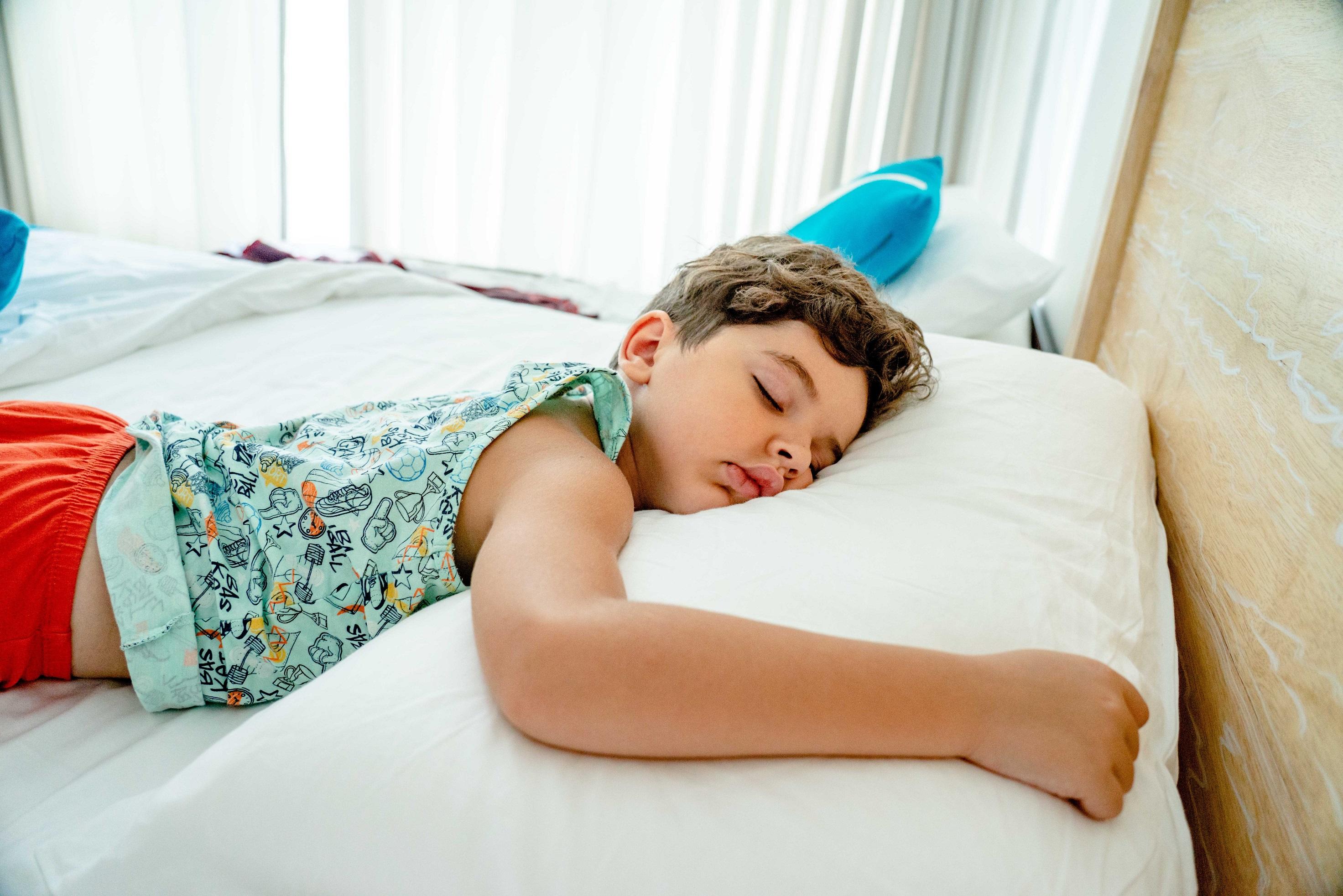- Home
- »Articles
- »Wellness
- »Mindfulness
- »Can Mindfulness Help Kids Sleep Better?



Can Mindfulness Help Kids Sleep Better?
9 July 2023
Children often have trouble sleeping and this can cause problems for their learning and behaviour. Having a child with sleeping problems is also stressful and tiring for parents. Mindfulness is a process of learning to be conscious of thoughts and feelings without being overwhelmed by them. You may be wondering whether it can help kids to sleep better.
Kids Need Lots of Sleep
Children need more sleep than adults in order to handle growing and learning new things. If they don’t get enough sleep, their immune system can suffer, and even their physical growth can be slowed. Sleep deprivation can lead to hyperactivity, impulsive behaviour and being easily distracted, disrupting their learning and ability to make friends and get on with family.
Experts recommend children aged 3-5 sleep 10-13 hours, which includes daytime naps. Once they’re in school, the recommendation is 9-12 hours, which many kids don’t manage, and for teenagers it’s 8-10 hours. It can be difficult for the whole family when your child doesn’t fall asleep easily or wakes in the night and struggles to get back to sleep. If racing thoughts and worries are keeping your child awake, mindfulness may be something that can help them.
What is Mindfulness?
Mindfulness means being aware of and present in the moment, without judgement. It's a simple concept, but it can be hard to do, especially when life gets hectic and overwhelming. Techniques include breathing exercises, visualisations, and activities where children learn to recognise and name their emotions. There are classes available and online resources including videos and activity packs. Many schools are also choosing to teach mindfulness in the classroom, as it’s been found to help children’s mental health and learning.
Stress and anxiety
Stress and anxiety can cause significant issues when it comes to sleep. If your child is stressed about school, friends, or anything else in their life, it can be hard for them to fall asleep, or they may wake in the night and struggle to get back to sleep. When stressed or anxious, our minds tend to race, and we may dwell on negative thoughts about the future, which can make it difficult to relax and fall asleep. Mindfulness can help to break this cycle by teaching children to focus on the present moment and let go of worry about the future. It can help to reduce general stress levels, which can also lead to better sleep.
Focus and Concentration
Children often struggle to maintain focus and concentrate on tasks, especially when there are distractions around them or things they’d rather be doing. Mindfulness can help children learn how to focus and concentrate on one thing at a time, which means they can get their homework and other necessary tasks done more quickly and then do something relaxing to wind down. By breaking tasks down into smaller steps and being aware of their breathing, children can train their attention span and finally get the rest they need.
Emotions
Another aspect of mindfulness involves teaching children about their own emotions, to recognise what they’re feeling and accept it. This can help them to put things into perspective. Children who are more aware of their emotions are also more able to talk about what’s worrying them and seek support from their family, teachers or peers, rather than worrying alone at night.
Mindfulness can help children sleep better for many reasons. It can help them relax and feel more comfortable in their beds, it can help ease anxiety and promote feelings of calm, and it can help them to better understand and cope with their emotions. Mindfulness can be a powerful tool for improving children's sleep quality and overall health when practised regularly.
